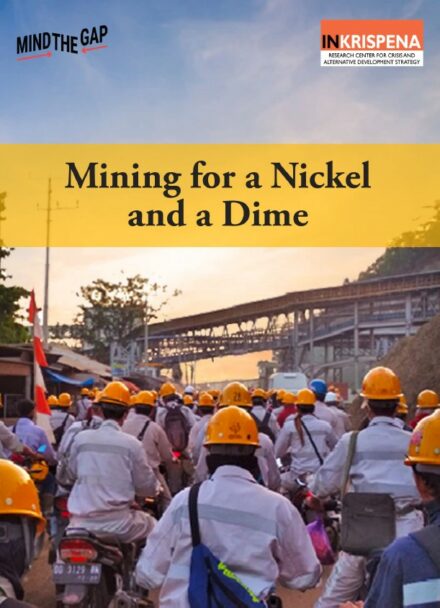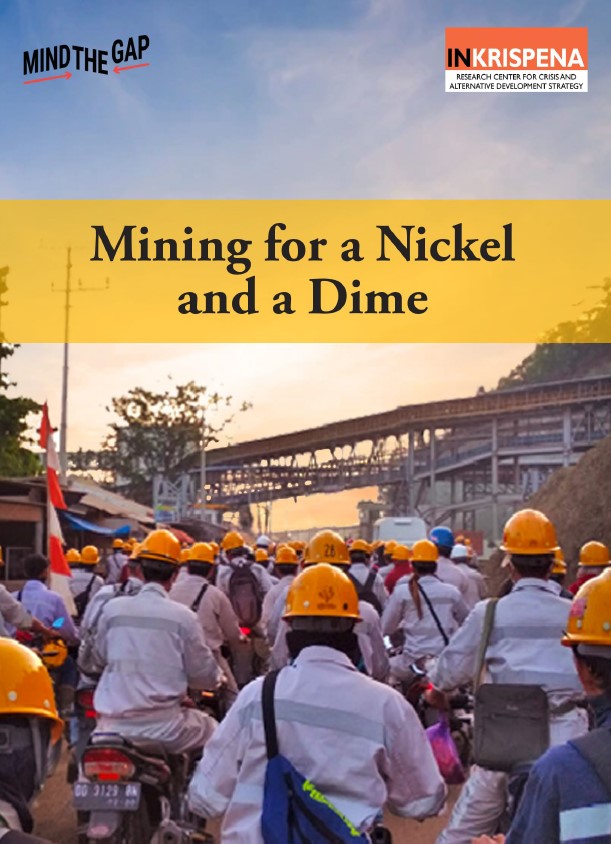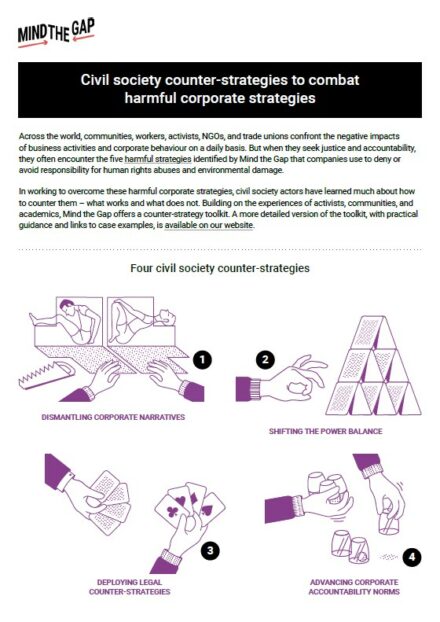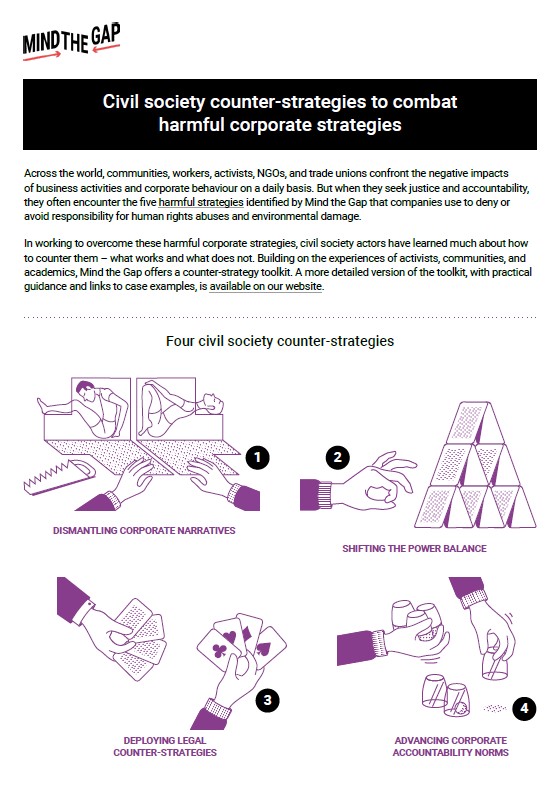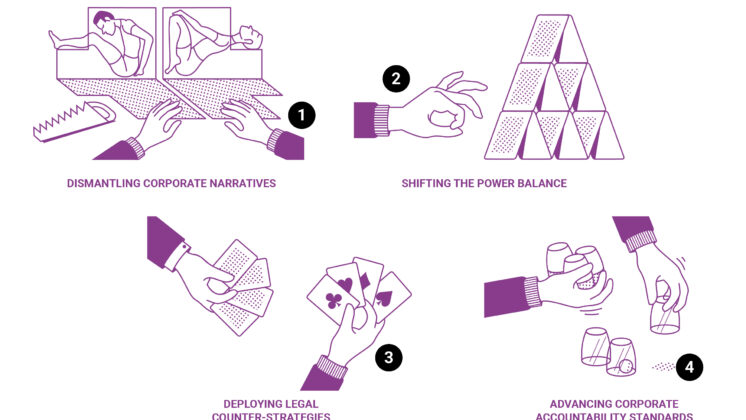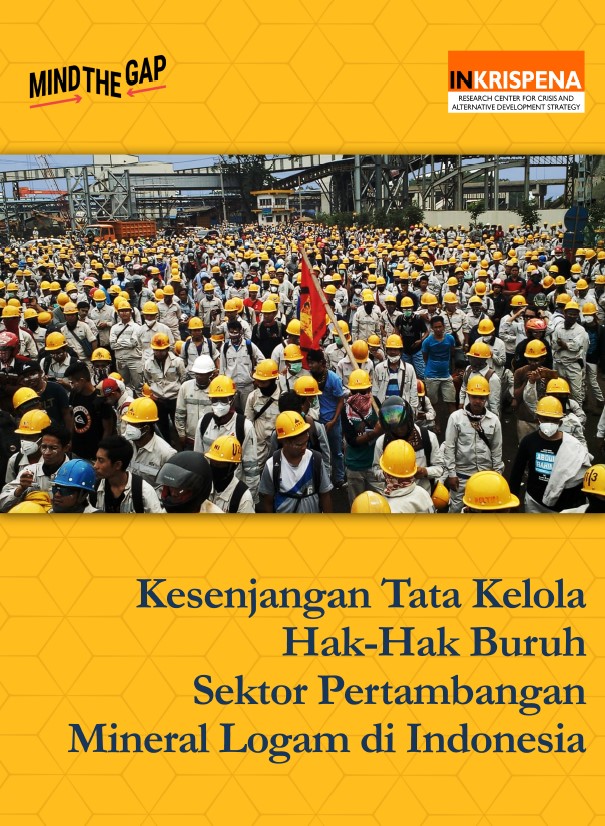Companies sometimes take states to international arbitration, undermining the adoption of more stringent legislation that would improve the protection of human rights and/ or the environment, but would harm their business.
CASE STUDY: Gabriel Resources sues Romania over open-pit mine
Investor-State Dispute Settlement (ISDS) mechanisms are commonly included in bilateral investment treaties between states in order to protect foreign investors against decisions of potentially unstable/ unreliable foreign regimes, thereby taking away some of the risks and stimulating international investments. However, under these treaties, multinationals can also bring claims if they believe that government decisions and new legislation could threaten their investments, possible resulting in lower profits.[1] Claims can also be made against regulations that protect citizens, such as labour rights and food safety standards, or measures that protect the climate and the environment.[2] There are even indications that international investors have sued governments using the ISDS mechanism in response to criminal investigations for alleged fraud or corruption against them and withdrawing the case after governments dropped their charges.[3]
Governance gaps remain
The harmful societal effect of this corporate strategy is that increased protection of people and/or the environment from the adverse impacts of international business operations is sacrificed for investments, leaving important protection gaps that allow harms to continue unchecked. Moreover, these mechanisms have been widely criticised by civil society for their lack of transparency and accountability. It is a closed-door arbitrage process that results in binding decisions that are enforceable worldwide without appeal options, and without proper participation of third parties, even when their interests are central to or affected by the dispute or its decision.[4]
Moreover, the financial burden of arbitration is extremely high and outcomes tend to favour investors over states. As a result, the mere option for investors to sue states can dissuade governments from enacting progressive regulation in the public interest in the first place, creating a so-called ‘regulatory-chill’.[5] As pointed out by academic Kyla Tienhaara, “the threat of arbitration can be as, or more, obstructive to policy development than its actual use”.[6]
[1] Verbeek, Bart-Jaap. “50 Years of ISDS.” SOMO, January 13, 2018, https://network.somo.nl/50-years-of-isds/ (accessed April 20, 2020)
[2] Verheecke, Lora, Pia Eberhart, Cecilia Olivert, and Sam Cossar-Gilbert. “Red Carpet Courts: 10 Stores of How the Rich and Powerful Hijacked Justice.” Friends of the Earth Europe and International, the Transnational Institute (TNI) and Corporate Europe Observatory (CEO), June 2019. https://corporateeurope.org/sites/default/files/2019-11/Red%20Carpet%20Courts.pdf
[3] Hamby, Chris. “Inside The Global ‘Club’ That Helps Executives Escape Their Crimes.” BuzzFeed News, August 28, 2016. https://www.buzzfeednews.com/article/chrishamby/super-court (accessed April 20, 2020)
[4] Lorenzo Cotula and Mika Schröder, Community perspectives in investor-state arbitration (London: International Institute for Environment and Development, 2017), 43., https://pubs.iied.org/pdfs/12603IIED.pdf (accessed November 11, 2019); Tienhaara Kyla Susanne, “The Expropriation of Environmental Governance: Protecting Foreign Investors at the Expense of Public Policy” (PhD diss., Vrije Universiteit Amsterdam, 2009), 447., https://research.vu.nl/en/publications/the-expropriation-of-environmental-governance-protecting-foreign- (accessed November 11, 2019).
[5] Van Harten, Gus. “An Example of Regulatory Chill.” Bilaterals, May 2015. https://www.bilaterals.org/?an-example-of-regulatory-chill. (accessed July 4, 2020).
[6] Tienhaara, 375.


